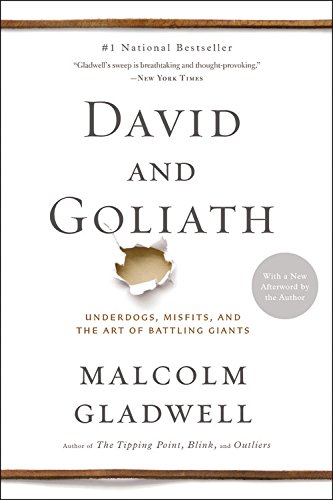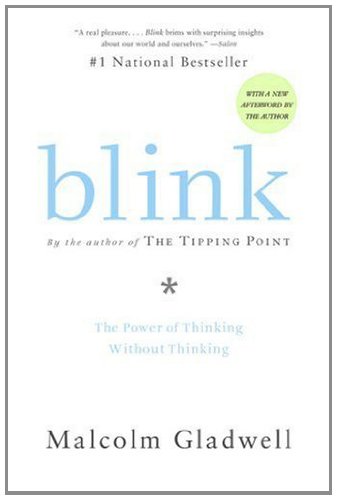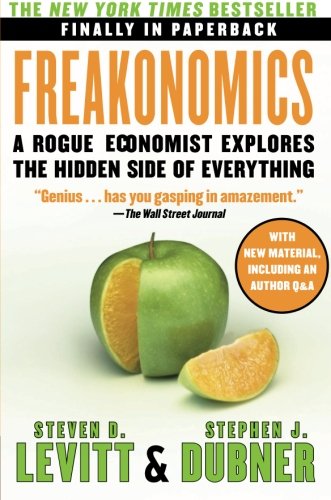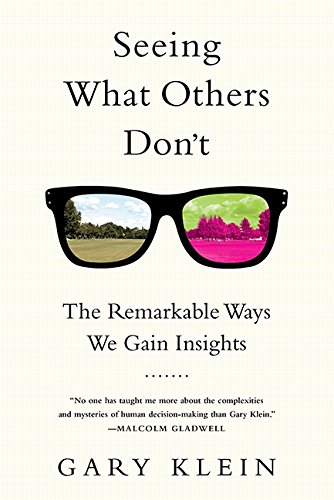We spent many hours on research to finding malcom gladwell books, reading product features, product specifications for this guide. For those of you who wish to the best malcom gladwell books, you should not miss this article. malcom gladwell books coming in a variety of types but also different price range. The following is the top 11 malcom gladwell books by our suggestions:
Reviews
1. Do Humankind's Best Days Lie Ahead?: The Munk Debates
Feature
House of Anansi PressDescription
In the seventeenth semi-annual Munk Debates, which was held in Toronto on November 6, 2015, pioneering cognitive scientist Steven Pinker and best-selling author Matt Ridley squared off against noted philosopher Alain de Botton and best-selling author Malcolm Gladwell to debate whether humankinds best days lie ahead.
2. Outliers: The Story of Success
Feature
Great product!Description
In this stunning new book, Malcolm Gladwell takes us on an intellectual journey through the world of "outliers"--the best and the brightest, the most famous and the most successful. He asks the question: what makes high-achievers different?His answer is that we pay too much attention to what successful people are like, and too little attention to where they are from: that is, their culture, their family, their generation, and the idiosyncratic experiences of their upbringing. Along the way he explains the secrets of software billionaires, what it takes to be a great soccer player, why Asians are good at math, and what made the Beatles the greatest rock band.
Brilliant and entertaining, Outliers is a landmark work that will simultaneously delight and illuminate.
3. David and Goliath: Underdogs, Misfits, and the Art of Battling Giants
Feature
David and Goliath Underdogs Misfits and the Art of Battling GiantsDescription
Malcolm Gladwell's provocative new #1 bestseller -- now in paperback.Three thousand years ago on a battlefield in ancient Palestine, a shepherd boy felled a mighty warrior with nothing more than a pebble and a sling-and ever since, the names of David and Goliath have stood for battles between underdogs and giants. David's victory was improbable and miraculous. He shouldn't have won.
Or should he?
In DAVID AND GOLIATH, Malcolm Gladwell challenges how we think about obstacles and disadvantages, offering a new interpretation of what it means to be discriminated against, suffer from a disability, lose a parent, attend a mediocre school, or endure any number of other apparent setbacks.
In the tradition of Gladwell's previous bestsellers-The Tipping Point, Blink, Outliers and What the Dog Saw-DAVID AND GOLIATH draws upon history, psychology and powerful story-telling to reshape the way we think of the world around us.
4. Blink: The Power of Thinking Without Thinking
Feature
Great book!Description
In his landmark bestseller The Tipping Point, Malcolm Gladwell redefined how we understand the world around us. Now, in Blink, he revolutionizes the way we understand the world within.Blink is a book about how we think without thinking, about choices that seem to be made in an instant-in the blink of an eye-that actually aren't as simple as they seem. Why are some people brilliant decision makers, while others are consistently inept? Why do some people follow their instincts and win, while others end up stumbling into error? How do our brains really work-in the office, in the classroom, in the kitchen, and in the bedroom? And why are the best decisions often those that are impossible to explain to others?
In Blink we meet the psychologist who has learned to predict whether a marriage will last, based on a few minutes of observing a couple; the tennis coach who knows when a player will double-fault before the racket even makes contact with the ball; the antiquities experts who recognize a fake at a glance. Here, too, are great failures of "blink": the election of Warren Harding; "New Coke"; and the shooting of Amadou Diallo by police.
Blink reveals that great decision makers aren't those who process the most information or spend the most time deliberating, but those who have perfected the art of "thin-slicing"-filtering the very few factors that matter from an overwhelming number of variables.
5. Freakonomics: A Rogue Economist Explores the Hidden Side of Everything
Feature
Great product!Description
Which is more dangerous, a gun or a swimming pool?
What do schoolteachers and sumo wrestlers have in common?
How much do parents really matter?
These may not sound like typical questions for an economist to ask. But Steven D. Levitt is not a typical economist. He studies the riddles of everyday lifefrom cheating and crime to parenting and sportsand reaches conclusions that turn conventional wisdom on its head.
Freakonomics is a groundbreaking collaboration between Levitt and Stephen J. Dubner, an award-winning author and journalist. They set out to explore the inner workings of a crack gang, the truth about real estate agents, the secrets of the Ku Klux Klan, and much more.
Through forceful storytelling and wry insight, they show that economics is, at root, the study of incentiveshow people get what they want or need, especially when other people want or need the same thing.
6. SuperFreakonomics: Global Cooling, Patriotic Prostitutes, and Why Suicide Bombers Should Buy Life Insurance
Feature
Harper PerennialDescription
Freakonomics lived on the New York Times bestseller list for an astonishing two years. Now authors Steven D. Levitt and Stephen J. Dubner return with more iconoclastic insights and observations in SuperFreakonomicsthe long awaited follow-up to their New York Times Notable blockbuster. Based on revolutionary research and original studies SuperFreakonomics promises to once again challenge our view of the way the world really works.
7. Think Wrong: How to Conquer the Status Quo and Do Work That Matters
Description
The way we solve problems is broken. We are trapped by techniques and assumptions of a prior era.Today challenges emerge at an ever-accelerating rate, and we struggle to find the imaginative answers we crave. When we do, biology and culture conspire to obstruct our progress.
Think Wrong: How to Conquer the Status Quo and Do Work That Matters teaches you how to use Future's radical problem-solving system to reliably produce surprising, ingenious, and seemingly magical answers to your most wicked questions. This book provides you with new language, frameworks, and tools to conquer the status quo and drive change.
Inside Think Wrong, designers and innovators John Bielenberg, Mike Burn, and Greg Galle show how pioneering teams of people have cultivated ways to challenge both their brains and the culture at large. These people learned to think wrong, and so can you.
An introduction offers the fundamental groundwork of Think Wrong. The subsequent chapters present six practices developed by the authors: Be Bold, Get Out, Let Go, Make Stuff, Bet Small, and Move Fast. Using firsthand case studies of success, and offering Think Wrong Drills that you may use, Think Wrong is a field guide for applying this highly effective problem-solving system to challenges big and small. In addition to the drills provided in the book, Think Wrong readers are provided access to free online resources.
8. What the Dog Saw: And Other Adventures
Feature
What the Dog Saw And Other AdventuresDescription
What is the difference between choking and panicking? Why are there dozens of varieties of mustard but only one variety of ketchup? What can we learn from football players about how to hire teachers? What does hair dye tell us about the history of the twentieth century? Boston Globe: "Unfailingly riveting." New York Times: "What the Dog Saw would be "Malcolm Gladwell's Greatest Hits."... It is a collection that plays to the author's strengths. It underscores his way of finding suitably quirky subjects and using each as gateway to some larger meaning."9. The Undoing Project: A Friendship That Changed Our Minds
Description
Brilliant. . . . Lewis has given us a spectacular account of two great men who faced up to uncertainty and the limits of human reason. William Easterly, Wall Street Journal
Forty years ago, Israeli psychologists Daniel Kahneman and Amos Tversky wrote a series of breathtakingly original papers that invented the field of behavioral economics. One of the greatest partnerships in the history of science, Kahneman and Tverskys extraordinary friendship incited a revolution in Big Data studies, advanced evidence-based medicine, led to a new approach to government regulation, and made much of Michael Lewiss own work possible. In The Undoing Project, Lewis shows how their Nobel Prizewinning theory of the mind altered our perception of reality.10. The Wisest One in the Room: How You Can Benefit from Social Psychology's Most Powerful Insights
Feature
The Wisest One in the Room How You Can Benefit from Social Psychology s Most Powerful InsightsDescription
Renowned psychologists describe the five most useful insights from social psychology that will help make you wise: wise about why we behave the way we do, and wise about how to use that knowledge to understand others and change ourselves for the better.When faced with a challenge, we often turn to those we trust for words of wisdom. Friends, relatives, and colleagues: someone with the best advice about how to boost sales, the most useful insights into raising children, or the sharpest take on a political issue. In The Wisest One in the Room, renowned social psychologists Thomas Gilovich and Lee Ross ask: Why? What do these people know? What are the foundations of their wisdom? And, as professors and researchers who specialize in the study of human behavior, they wonder: What general principles of human psychology are they drawing on to reach these conclusions?
They find that wisdom, unlike intelligence, demands some insight into peopletheir hopes, fears, passions, and drives. Its true for the executive running a Fortune 500 company, the candidate seeking public office, the artist trying to create work that will speak to the ages, or the single parent trying to get a child through the tumultuous adolescent years. To be wise, they discover, one must be psych-wise when dealing with everyday challenges.
In The Wisest One in the Room Gilovich and Ross show that to answer any kind of behavioral question, it is essential to understand the detailsespecially the hidden and subtle detailsof the situational forces acting upon us. Understanding these forces is the key to becoming wiser in the way we understand the people and events we encounter, and wiser in the way we deal with the challenges that are sure to come our way. With the lessons gleaned here, you can learn the key to becoming the wisest one in the room.
11. Seeing What Others Don't: The Remarkable Ways We Gain Insights
Feature
Seeing What Others Don t The Remarkable Ways We Gain InsightsDescription
Klein is a keen observer of people in their natural settingsscientists, businesspeople, firefighters, police officers, soldiers, family members, friends, himselfand uses a marvelous variety of stories to illuminate his research into what insights are and how they happen. What, for example, enabled Harry Markopolos to put the finger on Bernie Madoff? How did Dr. Michael Gottlieb make the connections between different patients that allowed him to publish the first announcement of the AIDS epidemic? What did Admiral Yamamoto see (and what did the Americans miss) in a 1940 British attack on the Italian fleet that enabled him to develop the strategy of attack at Pearl Harbor? How did a smokejumper see that setting another fire would save his life, while those who ignored his insight perished? How did Martin Chalfie come up with a million-dollar idea (and a Nobel Prize) for a natural flashlight that enabled researchers to look inside living organisms to watch biological processes in action?
Klein also dissects impediments to insight, such as when organizations claim to value employee creativity and to encourage breakthroughs but in reality block disruptive ideas and prioritize avoidance of mistakes. Or when information technology systems are dumb by design and block potential discoveries.
Both scientifically sophisticated and fun to read, Seeing What Others Don't shows that insight is not just a eureka! moment but a whole new way of understanding.
















